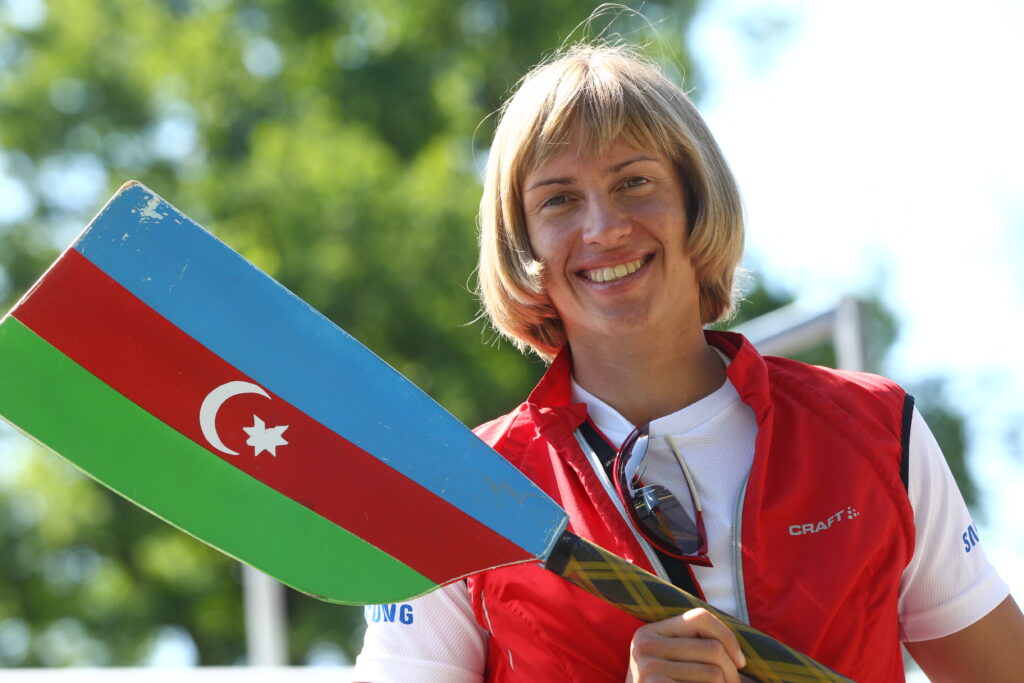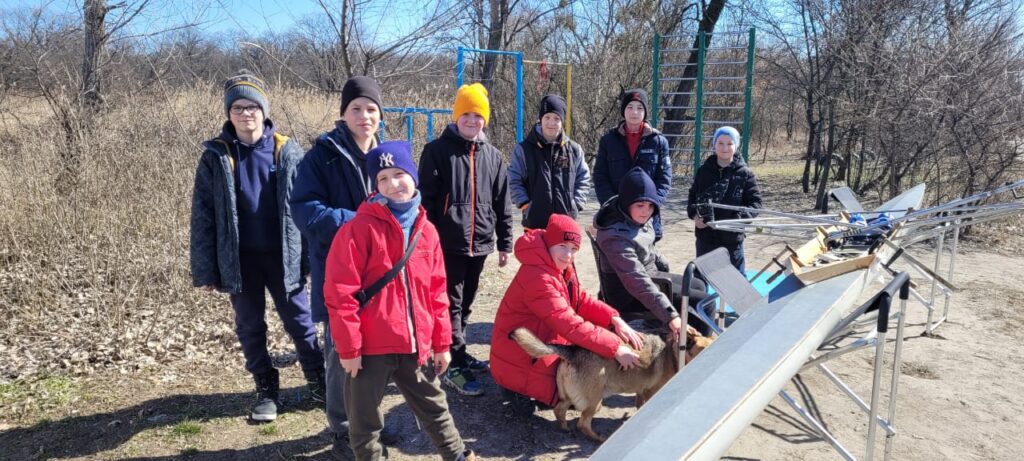
22 Apr 2022
Hope amidst chaos - an Olympian's commitment to Ukrainian children
This story was originally written by Detlev Seyb. It has been translated and information has been updated by World Rowing.
Nataliya Mustafayeva does not want to leave Ukraine. “I’m needed here,” she writes via Whatsapp, and prepares the next training session: the jetty needs to be repaired so that the boats can go on the water. Ever since the Russian invasion of Ukraine started, she’s been taking even more care of her junior rowers. It’s about creating a distraction from the cruel everyday life in the middle of the war.
Mustafayeva, the 2012 Olympic athlete, who competed in the Women’s single sculls for Azerbaijan, meets up to 40 children every day in Novomoskovsk – a town in southern Ukraine, around 300 kilometers west of Mariupol. The children’s parents work in or for the army. Although there had been no direct combat operations in their region by the beginning of April, the fear is so close at the latest when the military planes fly over the city. The children are traumatized, for them sport is the best medicine. It’s just a distraction from the terrible reality. “The young athletes run, row, move small dumbbells, play, do other things together. Or talk to each other.” She writes: “For a little moment we can forget the war.”

She built up the club in the Dnipropetrovsk region herself when she returned to Ukraine after taking part in the Olympic Games in London. In previous years, she competed for the national team of Azerbaijan, and was coached by Rüdiger Hauffe. The 65-year-old coach kept in touch with the athletes after his time there. Above all to Nataliya Mustafayeva, who after some time found a job as a sports teacher at a school and integrated her club in Novomoskovsk into everyday working life. Rüdiger Hauffe supported them from the very beginning, organizing boat donations and other material in Germany.
“It has always impressed me how she pursues her goals and puts her heart and soul into it,” says Rüdiger Hauffe. Even then, Nataliya Mustafayeva wanted to give children support in a city that was shaped by the war in the Donbas region after the Russian annexation of Crimea in 2014. Soldiers who were on their way to the Donbas or returning from there met here. “There was a lot of unrest and crime in the city,” says Hauffe: “She wanted to keep the children off the streets.” Almost all boats in the Skiff Novomoskovsk club come from Germany and the initiative of Hauffe, who after coaching stations in Magdeburg, Wanne-Eickel and Frankfurt became national coach in Iran and Azerbaijan before he went to the state rowing association in Saxony via the OSP Halle. Most recently, he met Nataliya Mustafayeva in Poland in September 2021 for the U23 European Championships – for one of the many boat donation handovers. She had traveled to Germany three times for this.
Since the outbreak of war, Rüdiger Hauffe has had even closer contact with his former athletes. At the beginning of March, Nataliya Natoka (today Teteritsch) contacted him and asked for help. He immediately made his way to the Polish-Ukrainian border and picked her up there with her children Julia (7) and Ilyia (9). “It was a long way for her from Kyiv to the border, where she had to wait another day,” explains the retired coach, who immediately contacted the authorities and mediated. Lars and Michaela Krisch have taken the small family in and supported them in all matters. Natoka now works as a sports teacher at a school in Dresden and takes care of refugee children from the Ukraine. At the DRV long-distance test in Leipzig, Rüdiger Hauffe drew attention to the situation of Ukrainian athletes and solicited donations of money and goods. Natoka has already moved into her own apartment in Dresden with her children.

Nataliya Mustafayeva and her daughter Oksana do not want to flee to Germany. “The kindergartens are closed. The schools too. There are still online classes,” she writes, and as long as she can help, she wants to help. She hasn’t lost hope: “We want to go back to living the way we used to. I hope this senseless war will end as soon as possible.” In the midst of her optimism, reality catches up with her again. “The sirens are wailing, it’s an air raid alarm. I have to go to the air raid shelter and will report back tomorrow.”
Due to its proximity to the city of Dnipropetrovsk, there are now more and more impacts in Novomoskovsk. The training had to be temporarily suspended. But Nataliya Mustafayeva hopes that she will soon be able to do something with the children again so that they can find distraction again.

